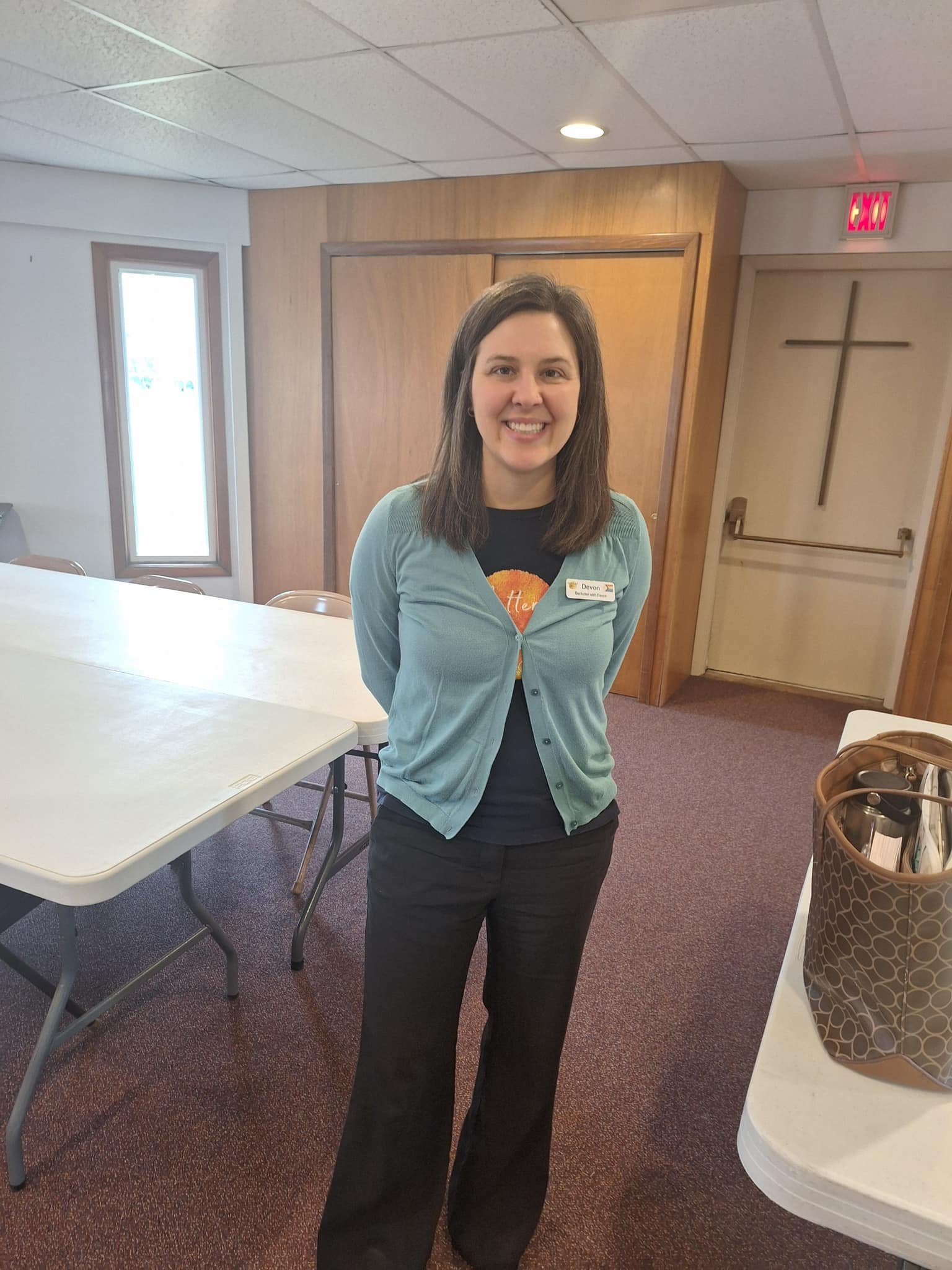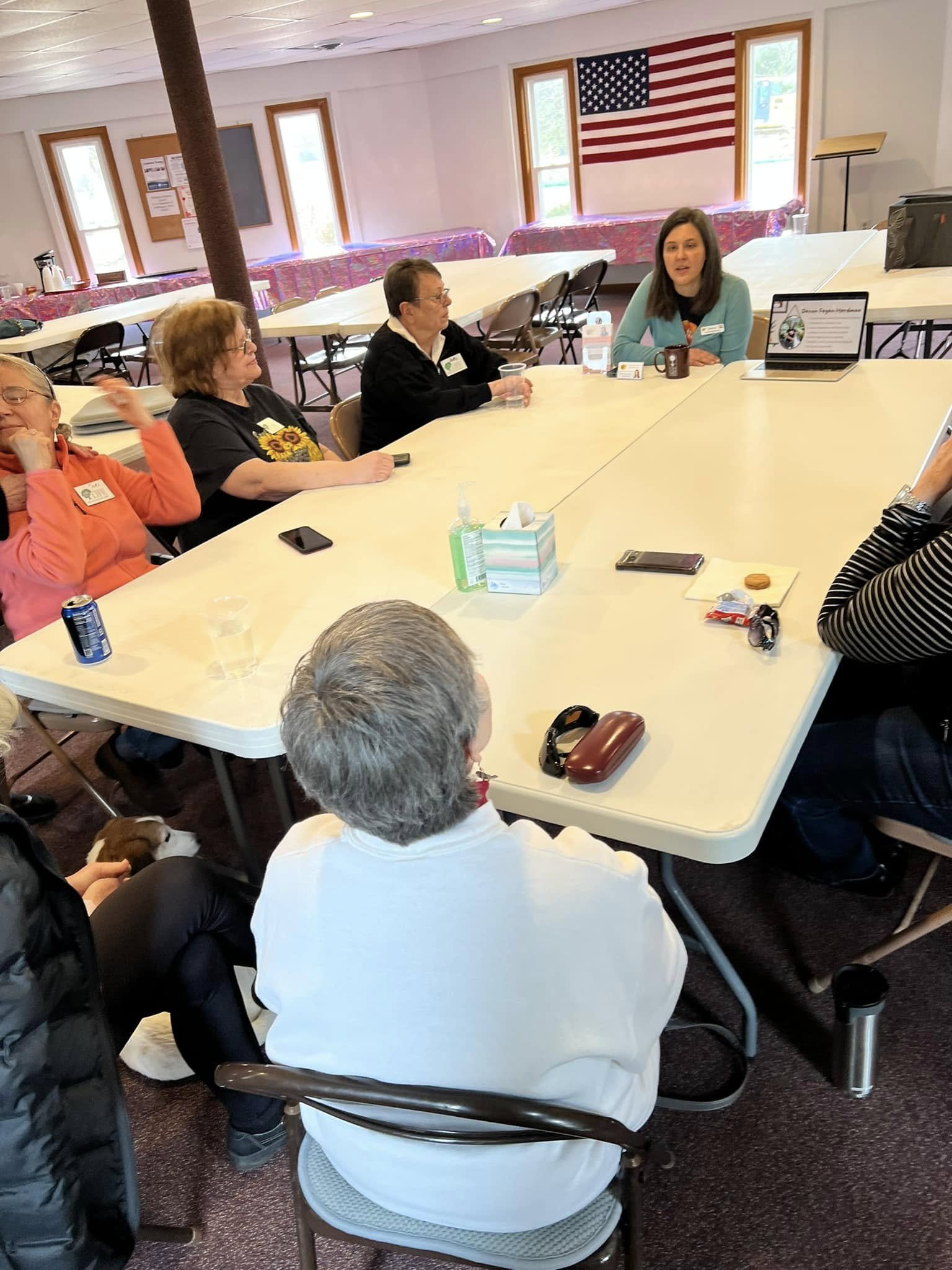Decluttering, Downsizing, and Dementia
A professional organizer provides caregiver support
This past week, Devon visited “memory cafes” in Wellington and North Ridgeville. Memory cafes are weekly drop-in support locations organized by LIFE: a dementia friendly foundation. A person with dementia or memory difficulties and their caregiver arrives at 10am. They receive 4 hours of fun programming and entertainment that will include dementia-friendly activities such as music, art, exercise, and comedy. They are served lunch. During “peer support” a speaker will come in and provide information to the caregivers. They are able to engage in group discussion so that caregivers feel less isolated and are able to provide ideas and solutions to others based on their own personal experiences. Devon is excited to visit the Elyria, Avon Lake, and Amherst locations in the coming weeks.
Decluttering with dementia
Just like all seniors, by the time folks hit their golden years they may have been living in a home for a long time and realize that they are surrounded by too many things. Seniors living with dementia face neurological changes that can make decluttering and downsizing especially difficult. Sometimes a caregiver may be ready to downsize but the person with dementia may not understand or become fixated on certain things.
What is dementia?
There are many different types of dementia. Some types are linear and progressive, but others can feel haphazard in which a person has a good day and a bad day in no clear pattern. A poignant description of dementia that I heard from a person who had been diagnosed with early stage dementia at a training is this: when waiting to get on the elevator we may forget what floor we are going to, however she forgot how to use the elevator and didn’t know she needed to press a button at all.
Memory loss and fixation
Sometimes a person will realize that they have dementia and are beginning to forget things. They may become fixated on a certain item or idea and repetitively focus on it. As an example, I was helping a family declutter and the man had some early memory loss. It was clear he was worried about forgetting some financial information. He had repeatedly gotten fresh notebooks and written down the same financial information on 1-2 pages of the notebook. We probably found 20 of these notebooks. There are other stories of folks wanting to gather items that the caregiver knows they will not be able to use, such as a laptop or other electronics. In this case, it is important not to declutter or remove all of the item that the person is fixated on. Create a clear home that you can point them to when the person might become agitated and are looking for that item. You probably do not need to save all 20 notebooks, but you could save several in locations that the person is often looking in.
Decluttering and agitation
Many times folks with dementia and memory loss can go through personality changes including becoming agitated much more easily. Due to cognitive changes, the person may or may not be able to communicate what is bothering them which can be frustrating for both the person and the caregiver. As a result, I recommend attempting to remove excess slowly. Significant changes in the environment may be upsetting to a person with memory loss, the space may become to feel foreign to them and they may not understand why.
Test out how the person will react by removing a small amount of clutter, boxing it up, and placing it away from the living area in a storage space. I recommend waiting before giving away, donating or discarding the items to see if the person with memory loss notices or asks about the missing clutter. How long you will have to wait depends on the person, usually the caregiver is the expert and will be familiar with how their person reacts typically to changes.
If the person with memory loss does notice missing items and is unhappy about them, the best choice is to replace the items. This is a choice for calm, peace, and a happy home. Missing items can become a fixation too, and it is just not worth it to create unnecessary agitation in an already difficult situation. As the person’s dementia progresses, it is likely that the caregiver will be able to achieve their goals in the future.
Lastly, consider safety issues. An example would be a person with dementia who wants to continue working in his woodshop. What if there are power tools but the person does not want you to remove the tools? How can you disable the tools so that they are unfixable for safety? Perhaps cutting off or removing the power cord. Could you make someone else be the “bad guy”? “I’m so sorry, but the doctor said you aren’t allowed to use the power saw anymore. It’s not safe. I know, it’s awful!” Let someone else take the fall so that the caregiver can sympathize and align themselves with their loved one.
Redirection and Distraction
Sometimes a caregiver can use a strategy I call the “little white lie”. Sometimes folks become fixated on something that is entirely impossible and may become agitated over it. For example, many years ago, I had a client living on a memory unit in a nursing home who was waiting to take the bus. She must have taken the bus to work every day and was fixated on it. I knew there was no bus coming, not today nor ever. Instead of telling her that or arguing with her, it is much easier and better for everyone to agree and validate the person’s thoughts. I try to use a little white lie to distract and redirect the person. For example, “The bus is coming in an hour, let’s head back to your room and get something to drink while we wait.” or “Did you know it’s a holiday today? There’s no work today! You can take the bus tomorrow. Let’s go have a visit since there’s no bus today.” The strategy of validating and then distracting a person with dementia can be helpful in many situations.
Downsizing and dementia
Many seniors decide to downsize as they age. They likely need less living space since kids are grown up and prefer to have less outdoor responsibilities such as mowing the lawn or shoveling snow. First floor living becomes necessary with physical changes such as arthritis and balance issues. Dementia can bring it’s own unique challenges as folks are thinking about downsizing. A person with memory loss may not understand why they are being “forced” to leave their familiar home and may become fixated or agitated. Keep familiar items as much as possible and recreate a space that feels like home if you can. Sometimes downsizing is not a choice but a requirement due to safety issues, a fall, or hospitalization. In this case, remember that you and your loved one are not alone. This is a difficult but also common experience. Visiting a memory cafe and experiencing the support of others in the same situation could make all the difference in the world!



